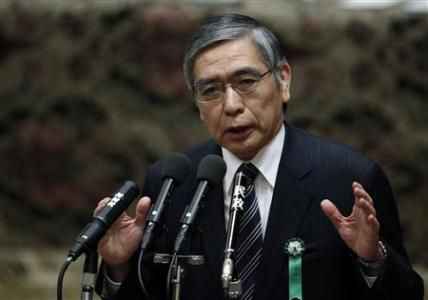Can Japan Jumpstart Its Economy? Bank Of Japan Governor Wants Multipronged Approach

Bank of Japan Governor Haruhiko Kuroda believes that Japan should take multiple approaches to stimulate economic growth in the country. The BOJ is under pressure to lower interest rates due to Japan's downgraded economic outlook, as the export-driven economy has suffered amid a global economic slowdown.
Kuroda said Sunday that monetary easing, along with fiscal spending and structural reforms, should be implemented to tackle economic concerns. However, he added that certain actions on monetary policy could have unintended consequences on the economy.
Kuroda said at a central banking seminar that "monetary policy influences broad areas of financial activity. The BOJ should examine financial functioning and make appropriate policy responses, so that the cost of monetary easing is reduced."
Japan in September made a trade deal with the U.S. during the United Nations General Assembly gathering in New York. The deal is estimated to boost Japan's economy by 0.8% and will create 280,000 jobs.
As part of the deal, the U.S. will cut or eliminate tariffs on goods such as certain machine tools, fasteners, steam turbines, bicycles and other goods. In return, Japan will lower duties on U.S. beef and pork, along with reducing the mark-up on imported wheat and barley. The deal will affect many other goods between the two countries, as it attempts to liberalize the U.S.-Japan trade relationship.
Japan was a major global economic powerhouse in the 1980s, known for its exported cars and the rise of Tokyo as a financial center. In the 1990s, Japan faced a period of stagnation, which is known as the Lost Decade.
© Copyright IBTimes 2025. All rights reserved.





















